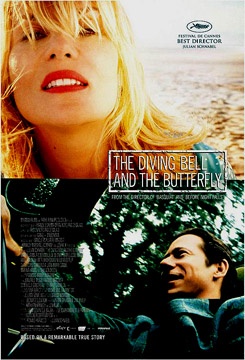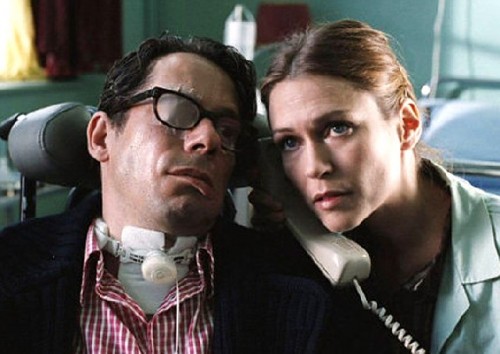Another Opinion of Julian Schnabel's New Film
Former NY Model Disagrees with Favermann's Review
By: Matuschka - Dec 29, 2007
Mark Favermann has missed ringing the bell when it comes to Julian's Schnabels film: "The Diving Bell and the Butterfly." When the critic first introduces the movie eight paragraphs into his review (after giving his reader an excellent mini bio of the "Expensive Plate Artist of the 80s") he taints the readers impression of the flick with a simply jealous phrase "the old Schnabel hype has hit again."
I was around in the 80s to see the hype Favermann refers to in his review. As a young artist on the NYC downtown scene I quite loathed the 'art environment' after the infamous "Scull Couple" (Robert and Ethel collectors of the seventies) had turned art into such a commodity by introducing painters at auction houses and watching the dealers bid up- and-jack hike the prices of their collection.
While I enjoyed reading Favermann's recollection of the 80s art market - I think his memory of Schnabel schlock then, got in the way with Schnabel's ability to make what some would say now is the 'perfect film.'
The gripes Favermann has with the film are rather frivolous and off the mark. He claims there are 'too many beautiful' girls in the film, Max von Sydow gets a bad rating, and the director is faulted for hitting us with a heinous ending that was burned into our memory- instead of what we had become accustomed to; beautiful imagery on the beach. When I read this erroneously critical paragraph I thought I had seen a different film.
Being a former model, a model artist and an artist's model, I did not find all the women in this film particularly 'beautiful' or that their competing good looks confused any issues in the film. The only confusion for me was who is the real Ms. Julian Schnabel, as the director's wife was cast and the acting by everyone was suburb. I also think any person incapacitated and being cared for by the opposite sex would have moments of embarrassment and fantasy while being in this situation; though this aspect is not exploited in the film at all. It is also quite amazing that the main character retained a great sense of humor throughout his horrific ordeal when such intimate details of his life were examined and attended to by the opposite sex. As for Max von Sydow's part, he too played his part well.
Favermann ends his criticism of the film claiming the director provided us with such a horrific ending image. I had to wonder, what was that? Perhaps I blinked at the wrong time and didn't see what Favermann was referring to, but, in my opinion, the film ended as beautifully as it was begun. And I read the review before trotting downtown and taking a seat at the Angelica.
Lastly, I would like to point out that Favermann failed to discuss any positive merits of a film as mighty as this one. While the critic says this was not a film about hope, but an inner imagination, he never mentions the word survival or the victim's ability to be creative- a tool many artists must employ to keep living, and not collapse into a vegetative state of depression, idleness, or dejection. While this man was reduced to vegetative status- his humor and creativity- need to produce-and have purpose- pulled him through would/ could have been endless days of boredom and gloom—where suicide was entertained but not an option.



